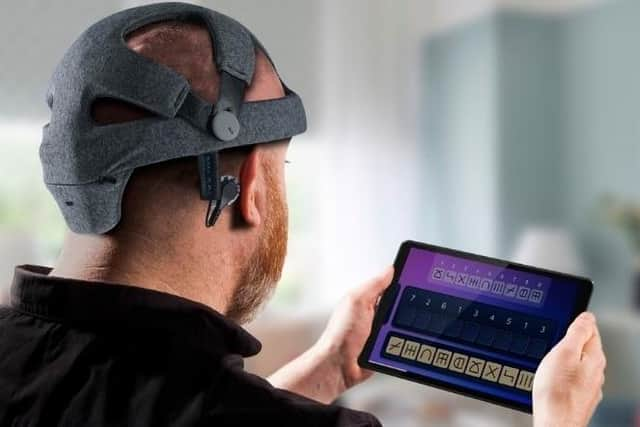UK first for new Forth Valley dementia trial
and live on Freeview channel 276
Using specialist headsets which record EEG brain waves, participants are asked to log onto an app on a tablet at home to carry out a variety of tasks and short ‘games’ at certain times during the day. They will also wear a special headband at night to record EEG brain waves while they sleep and monitor sleep quality at home over the course of one year.
The data from the headsets and sleep headbands is recorded and uploaded, via the participant’s home WiFi, onto secure platforms under anonymised codes.
Advertisement
Hide AdAdvertisement
Hide AdThe CNS-101 study is being carried out by a research team which brings together clinical nurse researchers at Forth Valley Royal Hospital and consultant psychiatrists at Stirling Health and Care Village.


Patients with mild dementia will be benchmarked alongside a control group of individuals who don’t have dementia and the responses will be compared to
track cognitive changes over time. The cognitive tests are a mix of memory, language, fluency, attention and overall concentration tests.
Participants will have several weeks to familiarise themselves with the tablet and the headphones and appropriate training will be given.
Advertisement
Hide AdAdvertisement
Hide AdNHS Forth Valley Clinical Research Nurse, Karen Petrie, said: “Playing what is effectively a computer game on your laptop at home should be an enjoyable experience. It’s a really exciting study and we are assessing whether in future the headsets could be used as a diagnostic tool for dementia or to assess cognitive changes in the condition.”
The NHS Forth Valley researchers are working with the Northern Irish company Cumulus Neuroscience, who have developed the at-home EEG headset that can objectively probe neuronal integrity, network connectivity as well as the strategies that the brain uses to compensate for neuronal damage. The hope is that this may be useful to detect EEG changes or changes in cognition, concentration and sleep quality.
The clinical trial will also assess the ease of use and any user issues with the platform as this will provide vital information to analyse and inform future dementia research.